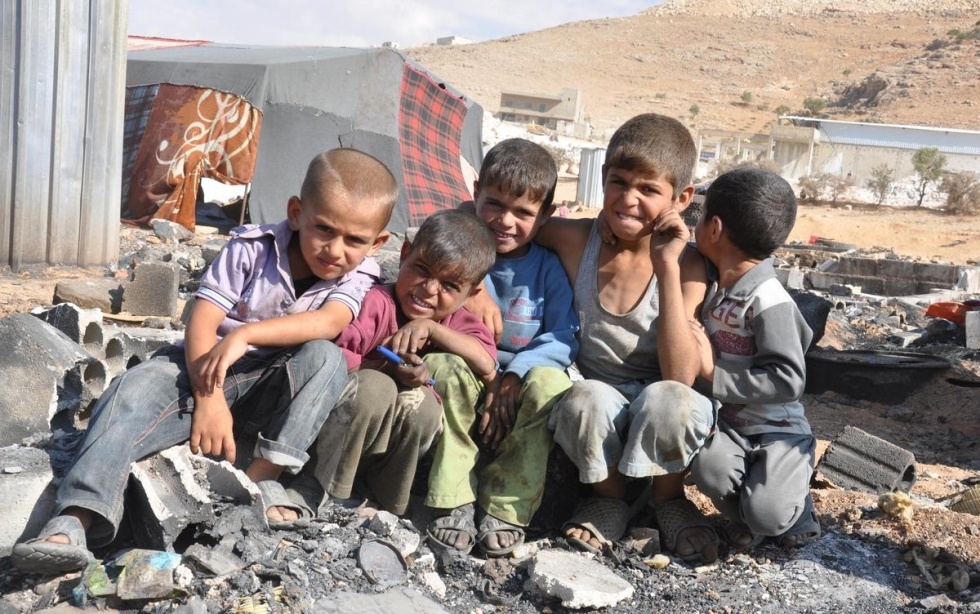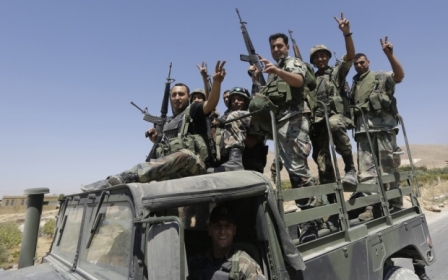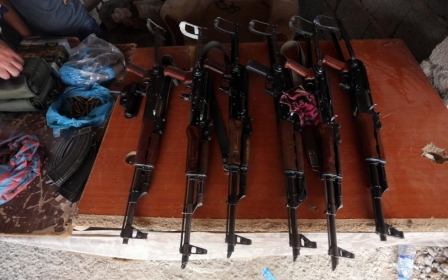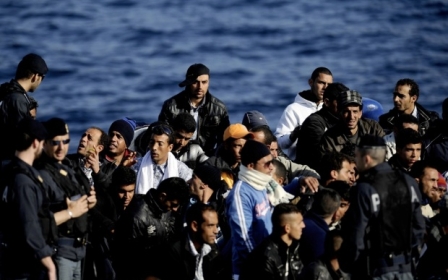Religious ties to Australia required for Syrian, Iraqi refugees fleeing

If you walk a block almost anywhere in Lebanon, you will come across Syrian refugees. Mothers sit on cardboard boxes begging, while the discoloured hair of their children belies their malnourished state. With Syrian refugees expected to exceed one third of Lebanon's four million population by the end of the year, witnessing their plight is entirely unavoidable. Twelve thousand kilometres away in Australia, however, the streets are clear of the misery of Syria's three-and-a-half-year war, as are the minds of many of its politicians and constituents.
Despite being one of the wealthiest countries in the world, Australia has only offered asylum to 1,500 of the almost three million Syrians who are registered refugees in neighbouring Lebanon, Jordan, Turkey and Iraq, or the six million internally displaced. Last year, the current government offered just 500 places to Syrians from its annual allocation of 13,750, and this was only at the behest of the United Nations High Commissioner for Refugees. Amnesty International says Australia is equipped to take 7,500 Syrian refugees on top of its annual quota.
Yet, within weeks of the extremist group Islamic State launching attacks on Iraqi Christians and Yazidis, the Australian Government announced it would offer asylum to 2,200 Iraqis and 2,200 Syrians, with the non-Muslim minorities taking preference. After failing to offer any real support to Syrians, about 90 percent of whom are Muslim, since winning office a year ago, the government, headed by the former Catholic trainee priest Tony Abbott, has suddenly found compassion.
In the statement, Immigration Minister, Scott Morrison said the places for Iraqis would include ethnic and religious minorities from northern Iraq, while the places for Syrians would include those currently living in "desperate conditions" in areas such as Lebanon. He said the places would be offered "predominantly" from the Special Humanitarian Program for those with existing family or community ties in Australia. "The programme also endeavours to focus on those who have a network of support that can assist their resettlement, such as local church communities who have strong ethnic and cultural connections. This has proved particularly helpful for those being resettled from the Middle East and Burma," Morrison said.
The Abbott government has successfully capitalised on demonising the "other" - just about the only thing winning it any political points these days is its tough stance on "illegal" boat arrivals; in nearly all other respects it is a deeply unpopular government. In 1999 during the Kosovo war, Australia offered 4,000 Kosovars temporary asylum. In a 2005 ABC report, migration agent Marion Le recalled, "It was a reaction from the Australian people in the beginning when they saw these people with their children in their arms and weeping and crying as they had to flee from their homes ... The Australian people watched those scenes with tears in their eyes and begged the government to intervene."
But there has been no national wailing on behalf of the Syrians, and the government's willingness to offer asylum to those affected by IS in Syria and Iraq predominantly extends to non-Muslims. Yes, the world is a different place now to what it was in 1999. There are more displaced people now than any other time since World War Two; more than 32,000 people flee their homes every day. But it is developing countries that are increasingly playing host to these refugees. It seems limited humanitarian assistance was offered to those affected by the Syrian war, and there was no inclination to engage militarily, while there was no perceived threat to the West. Now, with non-Muslims under attack from IS, the US, UK and Australia are willing to duke it out in Iraq once again - Australia has strike aircraft at a "high state of readiness."
While Western governments are propagating the notion that Iraqi and Syrian Christians are most at risk from IS - and there is no doubt that those groups are suffering terrible persecution - some analysts state that its philosophy holds that "apostates" are the worst offenders of its version of Islam. Ali Mamouri writes that "...for Salafists, if non-Muslims control Islamic countries and apostates exist in the Islamic world, the Islamic world must be cleansed of them before all else. In short, the purification of Islamic society takes priority over combat against non-Islamic societies."
Not only have extensions of assistance to those struggling to survive in the camps and streets been limited, Australian immigration officials have actively been trying to encourage Syrian asylum seekers who attempted to reach Australia by boat to return to the "terrible conflict" - the immigration minister's own words - they fled. The Guardian Australia reported in March that "Syrians detained offshore told Australian immigration department officials they would be killed if they returned to Syria, but the department facilitated plans for their repatriation nonetheless. This included sharing asylum-seeker identity documents with the Syrian consulate in Australia ... and endeavouring to issue an 'ultimatum' to force them into a decision on repatriation, despite a number of them being severely mentally ill."
Meanwhile the United Nations High Commissioner for Refugees advises that “most Syrians seeking international protection are likely to meet the refugee criteria of the 1951 Refugee Convention,” and any displaced Syrian should be offered some form of protection.
More than one million Iraqis have been displaced since the Islamic State began moving through the north in June, and Syrians who fled the war in their own country are among those who have been caught up in the extremist group's push. In Lebanon a raft of measures have been announced aimed at reducing the number of Syrian refugees in the tiny Mediterranean country. With a gross domestic product per capita of just $10,000, Lebanon was never in a financial position to provide support to the Syrians. Nor is there much political will to do so. The Daily Star reports Lebanon has received just $30 million of the $2.8 billion it requested from the international community to deal with the crisis.
In Turkey, local populations in the border regions and in Istanbul have clashed with Syrian populations, now believed to number about 1.2 million. In Gaziantep, this resulted in Syrian refugees being moved from the city into tent camps. And everywhere they seek refuge, Syrian girls and women are being sexually exploited - there have been a multitude of reports of girls being sold into marriage or used in prostitution rings. Meanwhile, Syrian child refugees' futures look increasingly bleak as they go longer and longer without education, let alone proper access to food, medical assistance and vaccinations. At least half of all Syrian refugees are children, according to the United Nations.
So while the streets, fields, rubbish dumps and camps of Syria, Iraq, Lebanon, Jordan and Turkey remain the homes of millions of Muslim and non-Muslim refugees, Australia has the luxury of deciding whether it will offer desperate Syrians and Iraqis asylum. And it has made it apparent only those who are "like us" will be considered worthy of compassion
Middle East Eye propose une couverture et une analyse indépendantes et incomparables du Moyen-Orient, de l’Afrique du Nord et d’autres régions du monde. Pour en savoir plus sur la reprise de ce contenu et les frais qui s’appliquent, veuillez remplir ce formulaire [en anglais]. Pour en savoir plus sur MEE, cliquez ici [en anglais].




